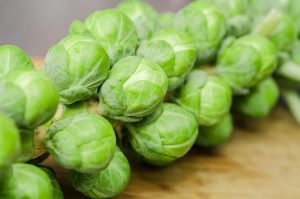If there is one holiday that is all about overeating, Thanksgiving is it. Though it is supposed to be a time of being grateful for everything you have, the day tends to center around the biggest meal most people eat all year, and many consider it a deal-breaker when it comes to diets and attempts to maintain or lose weight. The truth is that all in all, the traditional Thanksgiving meal is a healthy one. Turkey is lean and high in protein. A moderate serving is between 125 and 147 calories and delivers around 30 grams of protein. Plus it has a number of essential nutrients such as iron, zinc, and potassium, and is a great source of essential amino acids for building muscle.
The rest of the meal is pretty nutritious, too, as long as you go easy on the gravy and butter, and stick to moderate portions. Even the pumpkin pie contains essential nutrients. Pumpkin has a serious supply of vitamins A and C for improved immunity and enhanced eye health, and CNN reports that pumpkin increases the amount of insulin your body produces for reduced blood sugar levels.
Every Thanksgiving meal should include vegetables, and we suggest replacing the green bean casserole with nutritious but widely underappreciated Brussels sprouts. The much-maligned sprouts aren’t all that bad, as long as you know how to cook them. Instead of boiling the bejeezus out of them, try one of the delectable recipes Food & Wine offers up, including pairing them with escarole in a salad, caramelizing them with pancetta, or topping flatbread with Brussels sprouts for tasty hors d’oeuvres. Meanwhile, here is the skinny on the nutritional and health benefits of what should be your new favorite veggie:
Super-Nutritious
Brussels sprouts are jam-packed with essential nutrients. So much, in fact, that they land in the top five vegetables on the Aggregate Nutrient Density Index. They’re high in vitamins A, B-6, C, and K as well as minerals like folate, manganese, and potassium. Brussels sprouts also provide measurable levels of calcium, iron, phosphorous, and zinc. As for bonus vitamins, you’ll get thiamin, riboflavin, and niacin in a serving of Brussels sprouts.
Low-Cal, High-Protein

Brussels sprouts have a high nutritional content including fiber, and they’re low in calories–a perfect weight loss food.
True, you probably won’t be able to eat enough Brussels sprouts in one sitting or even one day to get the total amount of protein you need, especially if you are on a muscle building or weight loss diet. However, for a green cruciferous vegetable, the sprouts from Brussels are unexpectedly high in protein. The USDA says that 100 grams of Brussels sprouts (just over 1 cup) provides 3.38 grams of protein, which can count toward your daily intake. Also, considering how nutritious they are, that same cup of Brussels sprouts is only 38 calories.
Brussels Sprouts Benefits

Forget an apple a day–good for heart health, weight management, digestion, immunity, and cell regeneration, Brussels sprouts contribute to a clean bill of health.
With all those essential nutrients, Brussels sprouts provide some serious health benefits. In addition to the vitamins, minerals, and even protein, Brussels sprouts are high in fiber, which is important for heart health, weight management, and the digestive system. As a cruciferous vegetable, Brussels sprouts have compounds that contain sulfur, which research has shown to be effective in fighting cancer, according to Medical News Today. The vitamin K and calcium in Brussels sprouts improves bone health. Plus, the vitamin C the veggie provides protects your eyes against UV light damage to decrease risk of macular degeneration and helps minimize sun damage by encouraging collagen production and cell regeneration, which results in younger-looking skin.


